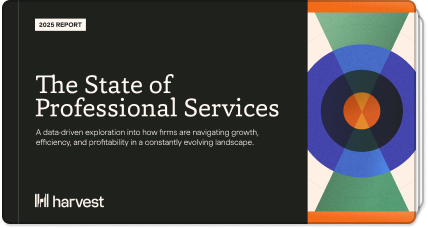
The phrase “strategic planning” is an oxymoron, according to McGill University professor of management Henry Mintzberg. He argues that real strategies don’t typically come from spreadsheets made in a conference room, but are instead ideated in real-time under less formal circumstances — whether that’s in a casual working group, or even random conversations over lunch.
His point is that failing to foster collaboration in the planning process can lead to uninspiring — and often unachievable — initiatives that don’t result in hitting your goals. The truth is that in order to craft a solid plan that impacts the organization in new ways, you need to actively listen to your team.
As you build your action plan for 2024, set aside some time to meet with your team and create a space for open communication. Ask them what’s worked and what hasn’t over the past year.
Not sure which questions will produce the best results? We’ve got you covered. Use the following list to create a valuable exercise that gives your team a chance to reflect, learn, and plan. Doing so will likely help you uncover key insights, inform planning decisions, and even form stronger bonds among your employees.
Questions about what worked
The first step is to ask your team to reflect on their accomplishments as a whole during the year. Of course, some achievements will stand out clearly, like hitting certain milestones or improving rankings. But often there are other accomplishments that go unrecognized.
Ask everyone to think back on past meetings, projects, and client experiences to better understand where the smaller wins lie. Then, ask them these questions:
- Which client success stories reflect our company’s growth over the past year?
- What is one thing you think our organization did best?
- What are you most proud of?
- Were there any unexpected wins? How did we get there?
- What are industry experts saying about our company?
- Are there any accomplishments that weren’t included in our annual goals?
These questions may seem simple, but you might be surprised about what you can learn from them. Plus, it’s important to acknowledge what’s worked so you can allow your team to build on their strengths and carry that momentum into next year.
Questions about lessons learned
When goals aren’t hit, it’s often because your team is experiencing roadblocks or obstacles — and that can certainly lead to quite a bit of frustration. And as their leader, it’s your job to ensure they’re set up for success by removing those issues.
Use the following questions to identify any possible barriers:
- What didn’t work for you last year?
- What is the one thing you think our organization failed at?
- What did we learn from our mistakes?
- How can we leverage the lessons we learned from those mistakes?
- Did you experience any breakthrough moments?
- What do you think is holding our company back?
- How can we be more helpful to each other?
Make sure your team knows that this session is a safe space without judgment and that they should be as honest and open as possible. It’s the only way to learn from what went wrong and identify areas for improvement and growth.
Questions about the year ahead
Now it’s time to ask your team to get creative and imagine what the company looks like over the next 12 months in a perfect world. Use these questions to start the conversation:
- How will we change over the next year?
- What challenges will we face?
- What will our clients be saying about us a year from now?
- What awards or recognition should we strive for?
- What kind of buzz will we generate?
- What should we strive to achieve more of next year?
- What will our competitors be saying about us?
- What will motivate us to show up to work every day?
These responses will likely be a mix of similar ideas and different — yet strong — opinions. That’s okay! It’s important to recognize a wide range of perspectives to continue thriving. However, you should also ensure your team is on the same page about priorities and figure out a way to combine those perspectives and work together to produce something great in the new year.
Ask these questions to discuss future initiatives:
- What do you want to prioritize in 2024?
- How do we need to change in order to achieve our goals?
- What conversations do we need to have now to align as a team on our visions?
Questions for implementing change
Once everyone has had a chance to reflect and envision, it’s time to discuss how to put that into action. A fun way to do this is to ask your team to think about the 2024 holiday party: What is the CEO’s speech about the previous year going to include? The answers to these questions will inform what he or she says:
- What milestones and achievements did we experience as a company?
- What was our biggest win?
- Who and what were the biggest driving forces behind our changes?
- How did we lay the groundwork for our successes?
- What were some of the organization’s biggest challenges and how did we overcome them?
Like with the previous set of questions, your team will have similar and differing responses. Keep the discussion going by separating the hypothetical from the actually possible by asking them the following questions:
- What projects should be our top 3 priorities for 2019?
- What do we need to action in this new year in order to set a course to make the achievements in the speech a reality?
- What resources do we need to overcome the challenges we identified?
Getting together and discussing the following questions isn’t just a chance to bond — it’s a valuable chance for everyone to feel heard. It also allows you to fully understand everyone’s achievements, take those lessons learned, and ensure your team is ready to hit the ground running in 2024.















